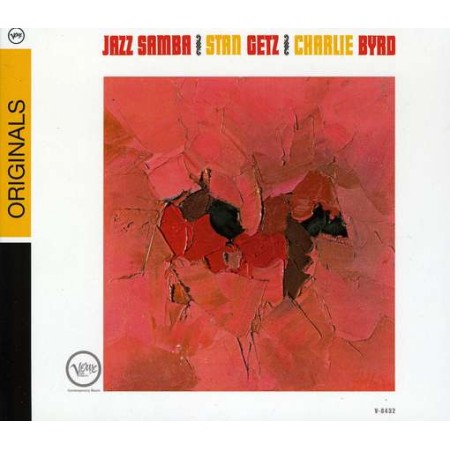
 Acclaimed Brazilian guitarist Rogerio Souza will perform at the Mainstay in Rock Hall on September 20.
Acclaimed Brazilian guitarist Rogerio Souza will perform at the Mainstay in Rock Hall on September 20.
The Spy was talking about upcoming concerts with Mainstay director Tom McHugh recently, and he highly recommended Brazilian guitarist Rogerio Souza’s show on September 20 with virtuoso bassist Leonardo Lucini and his brother, drummer Alejandro Lucini. The trio’s concert concludes the Mainstay’s year-long celebration of the Charlie Byrd/Stan Getz historic recording, “Jazz Samba,” that introduced the world to the music of Brazil. McHugh said, ” The show will feature ‘authentic,’ rather than ‘pop’ Samba.” The Spy called bassist and educator Leonardo Lucini to determine exactly what the difference is, and received a fascinating lesson in the history of Samba (and Brazil).
Lucini said that the style as we know it started during the early 1900s; it derives from “Choro,” (in Portuguese chorar is to cry; the melodic lines sometimes sound like weeping), and is a combination of Portuguese classical music – mainly dances, and rhythmic African slave music. The slaves, moving to Rio after they were freed in the late 1800s, mixed with the blue collar workers in the city; classical strings and guitar met percussion and created “Samba.” However, Lucini noted, there are now at least 13 variations of samba; which is where McHugh’s reference to ‘authentic’ versus ‘pop’ comes in.
The most popular form is the Bossa Nova, (most of us are familiar with the name, at least). Lucini also rattled off Pagode, Samba Reggae, Samba Enredo, Samba Choro, Samba Cancao, Tropicalia, and MPB (Musica Popular Brasileira). The early forms emphasized melody and rhythm over lyrics. Samba Cancao, which has a very slow rhythm, originated in the 1940s and ’50s, greatly influencing Antonio Carlos Jobim, considered the inventor of the Bossa Nova, and Joao Gilberto, one the great Bossa players. For Bossa Nova composers, lyrics were as important and elaborate as melody.

Virtuoso bassist Leonardo Lucini performs Samba Choro at the Mainstay on September 20, along with percussionist brother Alejandro and guitarist Rogerio Souza.
MPB debuted in the mid ’60s as a fusion of non-electric urban music and Bossa Nova. This style, evolving over the years with additional jazz and rock influences, has become Brazil’s urban middle-class mainstream music; Lucini described it as representative of prominent contemporary Brazilian composers.
The Tropicalia movement emerged in the late 1960s and early ’70s as a variation of MPB, a cultural hybrid with a new generation of musicians, led by guitarist/songwriter Gilberto Gil and popular singer Caetano Veloso. It was during this time that Brazil’s military dictatorship was most repressive. Many wrote protest songs; both Gil and Veloso, as well as writer and performer Chico Buarque were forced to leave the country for a period. They have since returned, with Gil actually serving as Minister of Culture from 2003 to 2008.
A more recent form, Samba Reggae, with, yes, Jamaican influence, is geared toward popular consumption with less emphasis on elaborate lyrics and more reliance on melody and harmonies. And Pagode, which developed in the 1980s, introduced additional instruments into the traditional formation. The term Pagode, originally referring to a party with music, food and dance, now has negative connotations meaning cliched, or very commercial pop.
And after speaking with Lucini and reading up on the various genres it became clear that Samba is more than just a style of Brazilian music, it is Brazil. It describes her historical culture; the food, dance, clothing, paintings, sculpture, and the famous Rio carnaval.
Souza himself is considered one of the foremost interpreters of traditional Samba Choro, using the classical guitar, bass, percussion combination. According to Lucini, the Mainstay show will consist of originals as well as traditional tunes. He described Choro in particular as very challenging and demanding to execute. The two performed together in the late 1980s in a group called “No Em Pingo D-Agua,” ( a knot in a drop of water-a Brazilian expression meaning something very hard to do), touring Europe and the States. While Souza currently resides in Brazil, the Rio-born Lucini brothers live outside of Washington, DC; both moved here in the ’90s to study jazz. In addition to accompanying international performers such as Souza, the brothers teach music and perform in the band Origem. Lucini described the DC area as a “…very diverse area for music, I am fortunate enough to have become part of a vibrant, eclectic and high level of community.”
 McHugh expects a full house for this show, best to reserve tickets now. No pop Pagode—just authentic Choro. And that “Jazz Samba” recording? Bossa Nova, of course.
McHugh expects a full house for this show, best to reserve tickets now. No pop Pagode—just authentic Choro. And that “Jazz Samba” recording? Bossa Nova, of course.
Thursday, September 20, 2012
7:30 pm
Tickets $15
Mainstay
5753 Main St,
Rock Hall, MD
(410) 639-9133



Write a Letter to the Editor on this Article
We encourage readers to offer their point of view on this article by submitting the following form. Editing is sometimes necessary and is done at the discretion of the editorial staff.